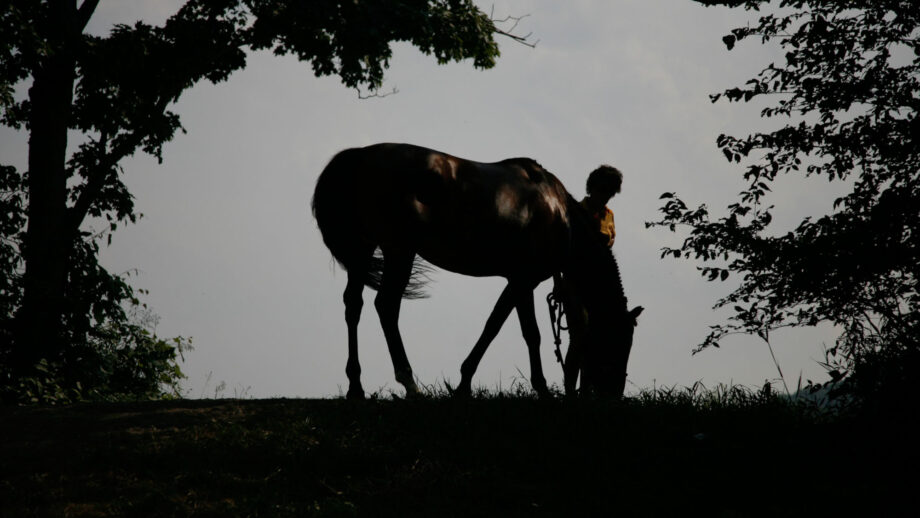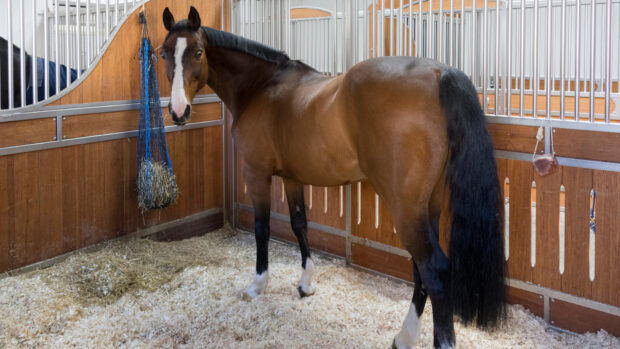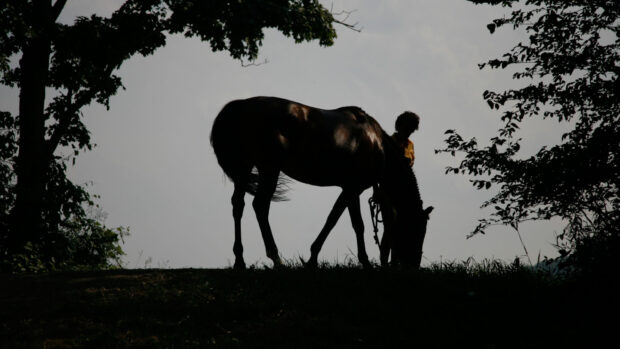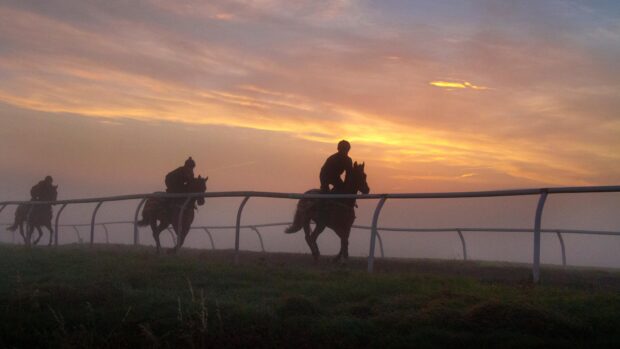Allowing a horse to see the body of a companion following its death can help with the grieving process, research into grief in horses has confirmed.
Researchers from the University of Lincoln and the San Marco Veterinary Clinic, Italy, aimed to identify behavioural changes in horses who have experienced the loss of a companion. An online survey collected information on 325 surviving horses, including relationship details between the survivor and deceased, whether the survivor was present at the time of death, if they saw the deceased horse’s body and their behaviour at different time periods following the passing.
The researchers found that most horses showed a change in behaviour following the death of a companion; 58.53% showed an increase in arousal, 68.63% a change in vocalisation and 67.68% an increase in movement. In the first 24 hours, horses who witnessed the death generally increased their vigilance behaviour and reduced time spent eating and sleeping – which “may reflect an initial stress response”.
Horses who had the opportunity to spend time with the body, but who did not witness the death were more likely to have no behaviour change – a response that has also been reported in dogs.
“It is possible that having access to the body allows the surviving horse to gather information on the condition of the companion, such as its lack of responsiveness and/or state of the body, as does witnessing the death of the companion,” said the researchers.
“This might allow a better understanding of the situation – i.e. the ‘death’ of the other in the sense of some form of permanent loss of another.”
Lead researcher Claire Ricci-Bonot told H&H that “perhaps it was not surprising, but it seems that for the surviving horse seeing the body is important”.
“There is growing interest in terms of end-of-life decisions for horses, but there has not been much research about the remaining companion, so we wanted to better understand this,” said Dr Ricci-Bonot, adding that there is a need for further research on how grief links to separation anxiety.
The study found that horses who did not witness the death and/or had no time with the body were more likely to have changes in behaviour, such as increased arousal and vocalisation, during the next six months – similar to responses reported when the same horses had been separated, which “could indicate some form of distress associated with separation”.
“Separation anxiety is a topic that has not been studied much. The grief response is emotionally related to the sense of loss derived from separation from a companion, regardless of its permanence,” said Dr Ricci-Bonot.
- Take part in the University of Lincoln’s study on separation anxiety in horses by completing this survey.
World Horse Welfare UK director Malcolm Morley told H&H: “We know that horses, as sentient beings, can experience positive and negative emotions, so this study into grief is invaluable for owners.
“Knowing that allowing a horse to see the body of their lost companion may help them to cope better, in the longer term, enables owners to make an informed decision about how to help their surviving horses through what can be a very difficult time.
“However, it’s important to recognise that it will not always be possible for horses to see the body – if, for instance, a horse passes away during an operation at a veterinary hospital – and that owners shouldn’t feel guilt in such situations, which are out of their control.”
Mr Morley added that ensuring horses have another companion, so they are not left on their own following the death of a friend, “can help greatly with the grieving process”.
“Anyone who loses a horse unexpectedly and has one left alone can contact us and we will do our utmost to find a suitable companion rapidly,” he said.
“We know that equine end of life and decisions around this is a hugely difficult time for owners and it’s absolutely OK to struggle with this. Our advice line is available in office hours on 01953 497238 for anyone in need of an empathetic, expert ear to discuss this decision with.”
Read the study abstract.
What has been your experience of how horses have reacted after losing a companion? Let us know at hhletters@futurenet.com, including your name, nearest town and county, for the chance for your letter to appear in a forthcoming issue of the magazine. Letters may be edited for clarity and length.
- To stay up to date with all the breaking news from major shows, subscribe to the Horse & Hound website
You may also be interested in:

Subscribe to Horse & Hound magazine today – and enjoy unlimited website access all year round
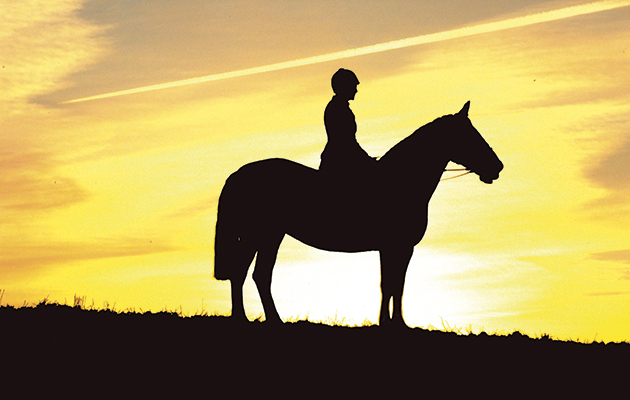
Do horses grieve for a lost companion? H&H explains…
When a horse loses a companion or field-mate, do they also feel loss? Veterinary behaviourist Gemma Pearson MRCVS shares her

9 things no one tells you about losing a horse
The best listeners in the world and the only cure you know for a bad day, you can’t imagine life

